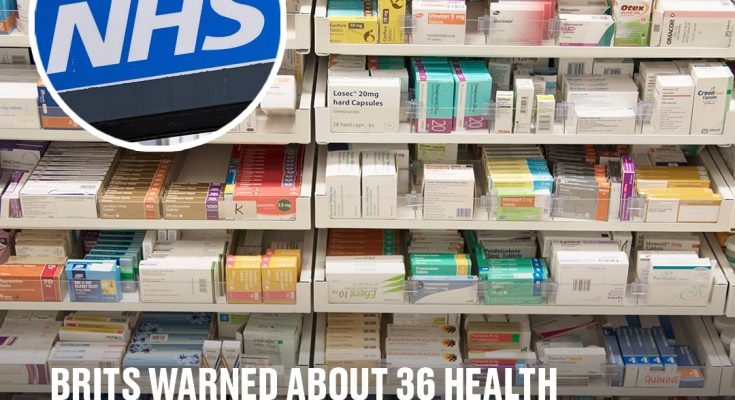This is because the NHS has now launched a shutdown of any ‘unnecessary’ spending on common ailments which require ‘over-the-counter’ medicine.
Now, illnesses that you can take care of at home will be left to the public to deal with.
Before, you could pop into the doctors to go and have your minor illness taken care of with a prescription, and now you’ll have to buy the product.
Some of the illnesses are so common, that it’s going to be a pain with how many times you’ll have to stock up on the medicine.
But for the NHS, it saves vital resources which could be better used elsewhere.
Here’s what you can’t get help from the doctor’s office anymore.

It’s in a bid to save the NHS money better spent elsewhere. (SimpleImages / Getty Images)
Coughs, colds and nasal congestion
Say goodbye to asking for cough syrups or nasal sprays as you won’t be able to have it treated at the doctors.
As many of these products can be purchased away from the pharmacy, there’s really no need to bother the practice with it.
Conjunctivitis
A terrible ailment involves horrid gunk coming out of your eye, which can actually glue it shut while you sleep, conjunctivitis will now require you to pop into the shops to treat it yourself.
This is so that the NHS can tighten prescriptions for certain medicines which could actually save the NHS millions of pounds each year.
Mild to moderate hayfever and seasonal rhinitis
If you’re suffering from hayfever and need something to calm your allergies, then you’ll need to find the antihistamines at the supermarket from now on.
Thanks to the proposals, which received ‘broad support’ when it was first discussed, as per Express, you can kiss your prescription goodbye.
Oral thrush

Common conditions like Oral Thrush will no longer be treated by the GP. (Tunatura / Getty Images)
Yes, even oral thrush isn’t going to get you a prescription.
This ailment sees white patches on the tongue and throat and is commonly seen in babies.
The reason for this?
According to River View Surgery as reported by the Mirror: “GPs issued 1.1 billion prescription items at a cost of £9.2 billion in 2015/16. The vast majority were appropriate, but many were for medicines, products or treatments that do not require a prescription and can be purchased over the counter from pharmacies, supermarkets, petrol stations, corner shops or other retailers in some cases at a much lower cost than the price paid by the NHS.”
Adult constipation

Many illnesses can be treated at home. (Antonio Hugo Photo / Getty Images)
While this illness can keep you locked to the toilet all day, you should stock up on over-the-counter medications that you can grab away from the pharmacy to help it.
As NHS England claimed it spent £22.8 million on constipation treatment, there’s no need to continue to drive those costs.
Athlete’s foot
Even though it’s unsightly and uncomfortable, the NHS spent £3 million on athlete’s foot and other fungal infections every year when it could be taken care of at home.
Other things include spending £4.5 million on dandruff shampoos, which is a common thing many people suffer from, but there are dandruff shampoos available in most shopping centres.
NHS England chief executive Simon Stevens said at the time of the announcement: “The NHS is one of the most efficient health services in the world, but we’re determined to make taxpayers’ money go further. The NHS should not be paying for low value treatments and it’s right that we look at reducing prescriptions for medicines that patients can buy for a fraction of the price the NHS pays.”
When the changes were first introduced two years ago, these were the other conditions it affected, as per the River View Surgery.
Acute sore throat, infrequent cold sores of the lip, cradle cap, haemorrhoids, infant colic, mild cystitis, mild irritant dermatitis, dry eyes or sore eyes, earwax, excessive sweating, head lice, indigestion and heartburn, infrequent migraine, insect bites and sting, mild acne, mild dry skin, sunburn, sun protection, minor burns and scalds, minor conditions associated with pain, discomfort and fever, mouth ulcers, nappy rash, prevention of dental caries, ringworm/athlete’s foot, teething/mild toothache, threadworms, travel sickness and warts and verruca’s.
Featured Image Credit: Mike Kemp/In Pictures via Getty Images
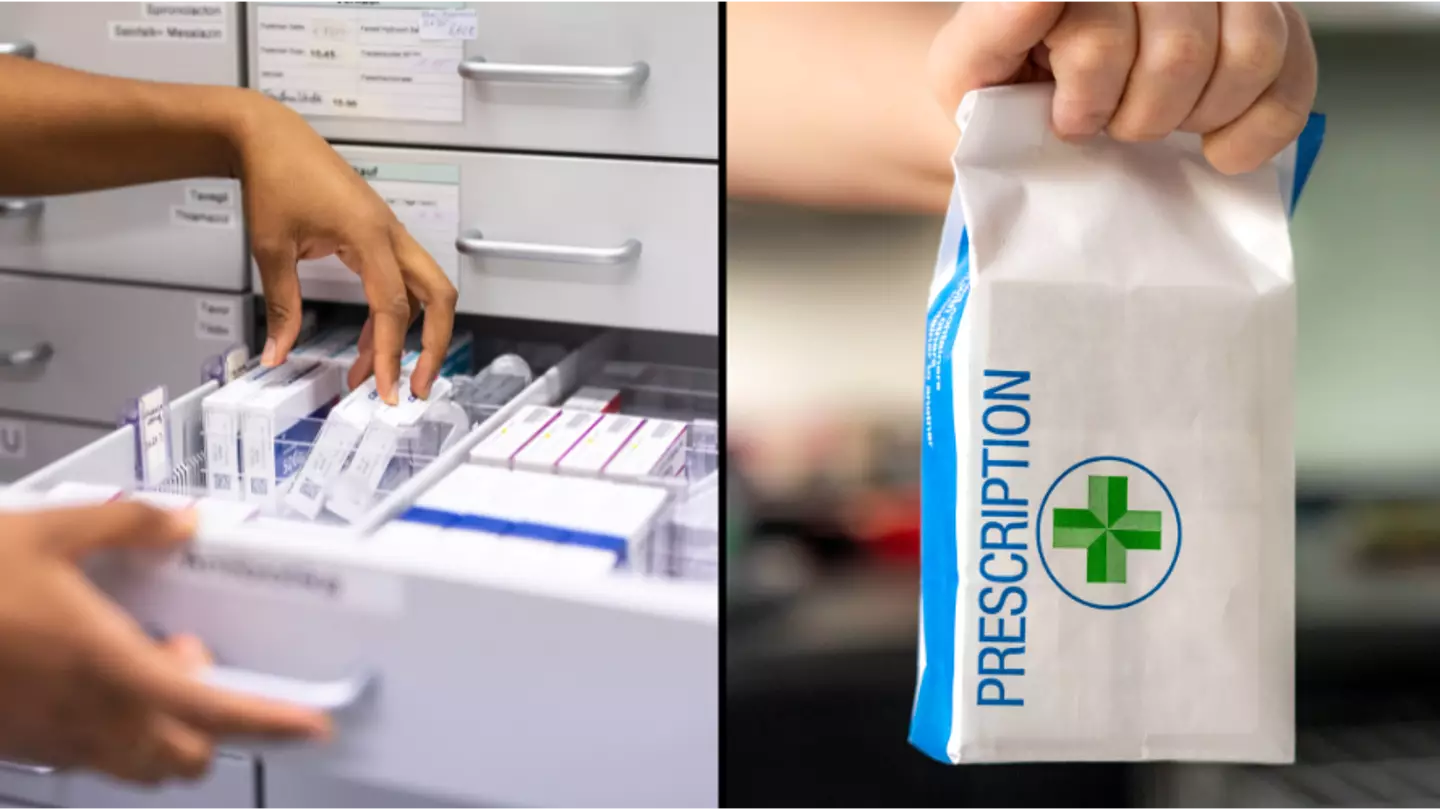
Today’s the day that a big shake-up to many of the UK’s pharmacies comes as there are now seven common illnesses which you won’t need to see the doctor for.
From today (31 January) pharmacists across England will have the ability to assess potential patients and prescribe treatment for some of the most prevalent afflictions that plague the public.
According to NHS England, a vast majority of community pharmacies in England, 10,265 in total, will be part of the Pharmacy First scheme.
The idea behind the shake-up is getting people treatment faster and freeing up GP appointments for common conditions which a pharmacist can diagnose and treat.
It’s hoped that this change will free up to 10 million GP appointments a year, which should come as some relief to those who have to dial their local medical centre first thing in the morning to try and get a spot.
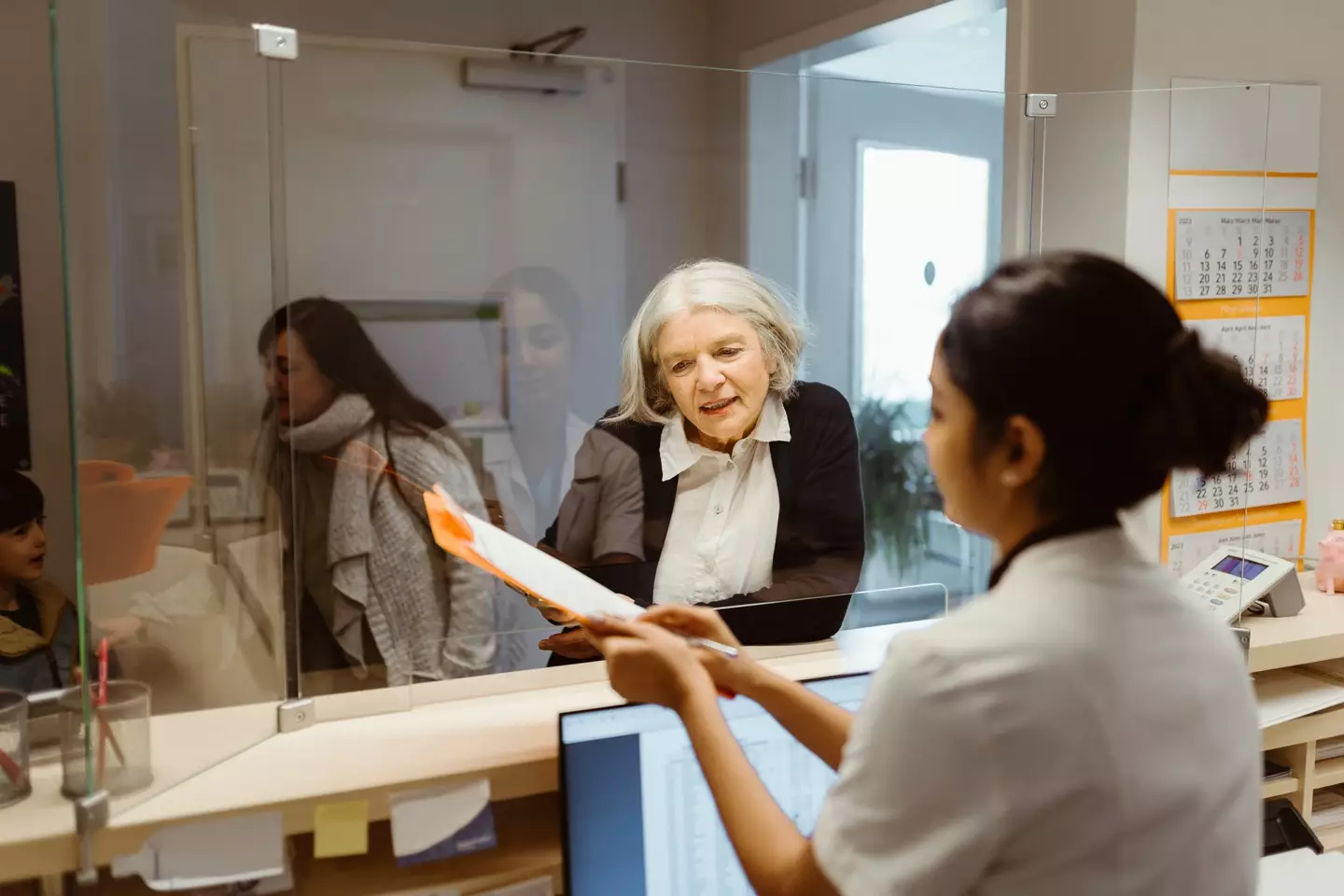
Getty Stock Photo
Instead you can get seen to at the pharmacy and receive treatment without a GP prescription.
Pharmacies taking part in the scheme will get an upfront payment of £2,000, along with £15 for each consultation they do and another £1,000 a month if they carry out a minimum level of consultations.
NHS chief executive Amanda Pritchard said: “GPs are already treating millions more people every month than before the pandemic, but with an ageing population and growing demand, we know the NHS needs to give people more choice and make accessing care as easy as possible.
“People across England rightly value the support they receive from their high street pharmacist, and with eight in 10 living within a 20-minute walk of a pharmacy and twice as many pharmacies in areas of deprivation, they are the perfect spot to offer people convenient care for common conditions.”
Hopefully, the scheme will mean people will face less hassle to get treated for seven of the most common illnesses.
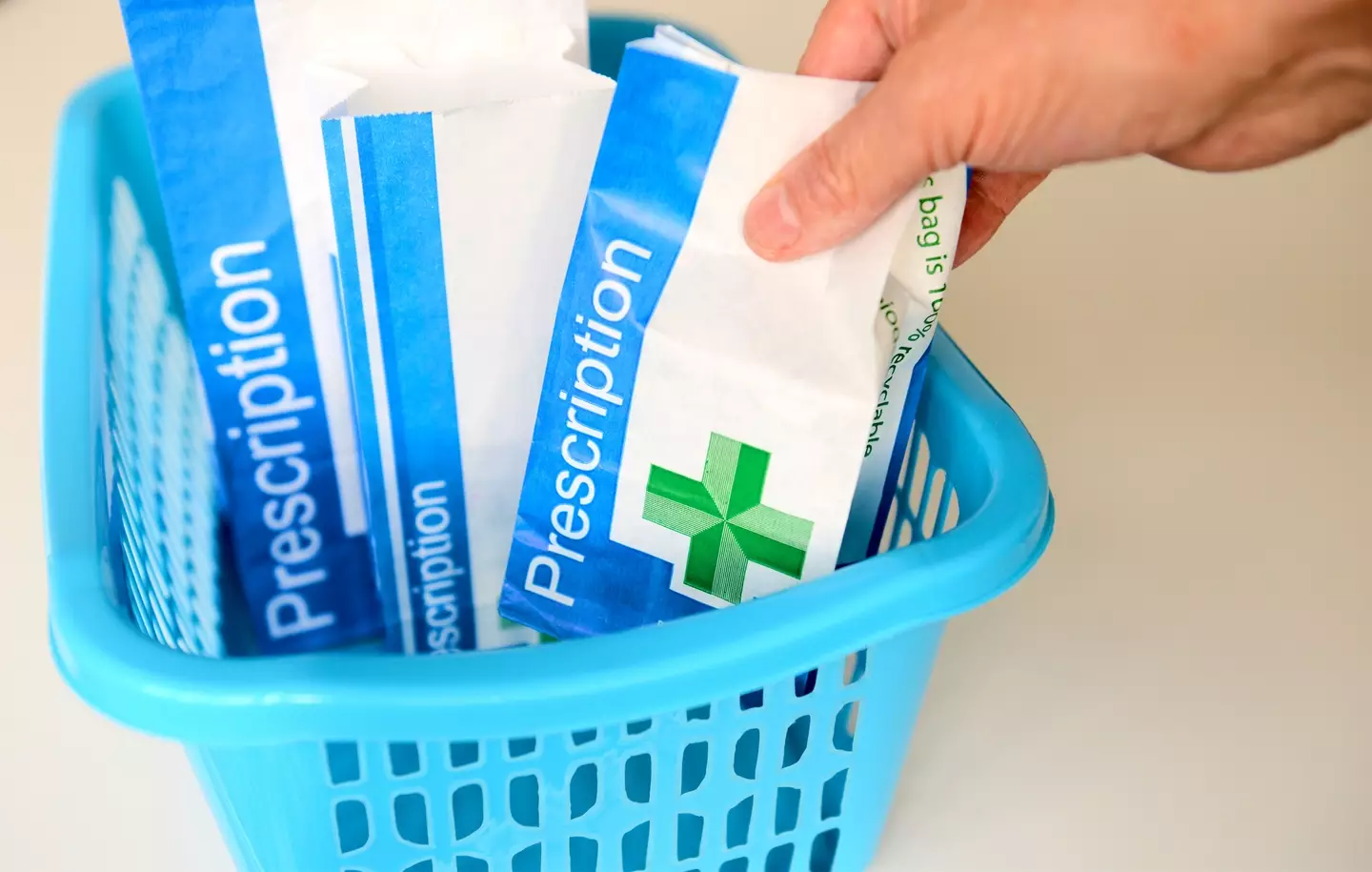
Getty Stock Photo
From today, you do not need a GP appointment to receive treatment for the following:
• Sinusitis
• Sore throat
• Earache
• Infected insect bites
• Impetigo
• Shingles
• Uncomplicated urinary tract infections in women under 65
Pharmacists in the UK study medicine for five years, to become one a person needs to get a Masters degree in Pharmacy which takes four years and then complete a further year of foundation training for the role.

Getty Stock Photo
Meanwhile, Dr Leyla Hannbeck, chief executive of the Association of Independent Multiple Pharmacies, said that pharmacies were ‘severely underfunded to the tune of £1.2 billion’.
She warned that the lack of funding was resulting in many pharmacies ‘reducing opening hours and even closing completely’, which would certainly be an impediment if they become the new first stop for people wanting treatment for many common illnesses.
Dr Hannbeck called for an end to the ‘stranglehold of chronic underfunding’ if the government wanted pharmacies to deliver on their expectations.
Prime Minister Rishi Sunak said that £645 million would be going into the scheme.
Featured Image Credit: Getty Stock Images

The NHS has launched a new ‘act fast’ campaign to warn Brits about a horrific medical condition that kills two million brain cells every minute.
It is the latest health advice from the UK health service this autumn, following a cases spike for a brutal winter illness as well as the resurgence of a Victorian disease that leaves you with ‘tiny red dots’ on your skin.
Away from warning us about diseases that are spreading, top officials in the NHS are this week (4 November) launching a new campaign to warn Brits about spotting the first symptoms of the catastrophic health condition that can kill parts of your brain within minutes.
We are talking about a stroke, which can affect anyone of any age, according to the Stroke Association charity.
Now, tens of thousands of people who have a stroke could be diagnosed and treated sooner after new data found that the average time between onset of first symptoms and a 999 call being made was nearly an hour and a half.
New NHS data shows that in 2023/24, the average time between first suffering symptoms of a stroke and calling 999 for 41,327 patients was 88 minutes. That means up to 1.76 billion brain cells could have been lost per person in that time frame, potentially causing untold damage.
England’s top doctor has now urged the public to call 999 even if the first sign of stroke doesn’t seem like an emergency, and said immediate action at the first sign of a stroke ‘could help save and protect many more lives’.
It is after analysis showed that two thirds of respondents (64 percent) said they would not call 999 as their first course of action if they noticed someone was suddenly struggling to smile.

A stroke can devastate you within minutes (Getty Stock Images)
The NHS campaign launches with a brand new TV advert showing example symptoms; a man recognising his partner is struggling to smile while watching TV (face), a decorator suddenly unable to lift their paint roller (arm), and a grandmother struggling to read their grandchild a bedtime story (speech).
It will run across TV, TV on demand and radio in England until mid-December.
Dr David Hargroves, NHS national clinical director for stroke and consultant stroke physician, said: “When someone has a stroke, it’s estimated they may lose around two million brain cells a minute, which is why rapid diagnosis and treatment is critical.
“The first sign of a stroke might not seem like much, but face or arm or speech, at the first sign it’s time to call 999.”
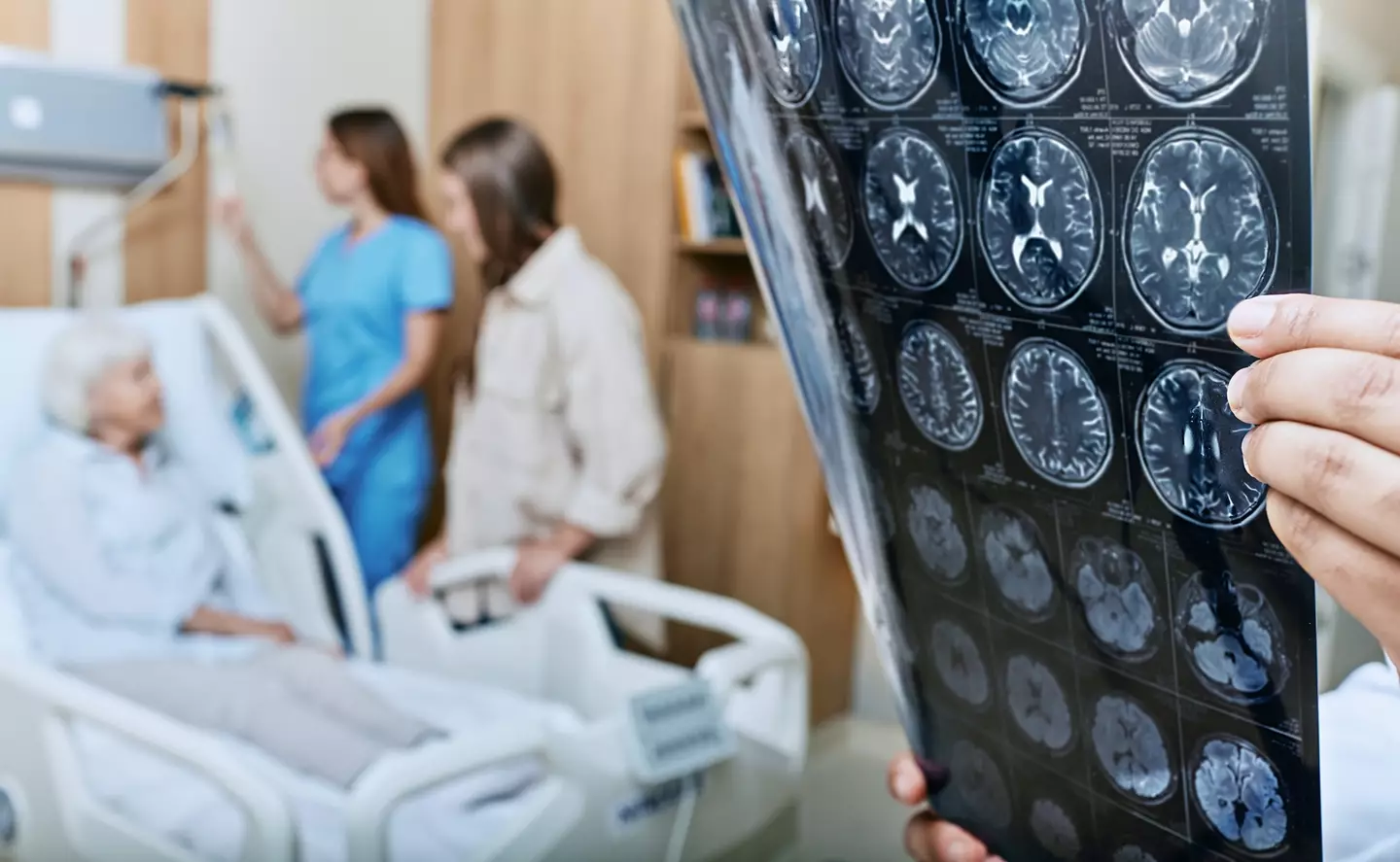
Acting quickly is the most important thing if you or someone around you suffers a stroke (Getty Stock Images)
He added: “Thanks to greater awareness of the symptoms and advances in NHS care, more people are now surviving a stroke than ever before, but there is much more to do help save lives and reduce the long-term impact of strokes.
“Acting FAST remains vital – whether it is a friend, loved one or even a passer-by, dialling 999 quickly saves lives.”
Juliet Bouverie OBE, CEO of the Stroke Association, said: “Over 88,000 people survive a stroke every year in the UK, but surviving a stroke is just the start of a long and traumatic battle to finding their way back to life.
“Mums, dads, grandparents, young people, even children can be stroke survivors, and the impact of stroke on them and their loved ones can be catastrophic.”
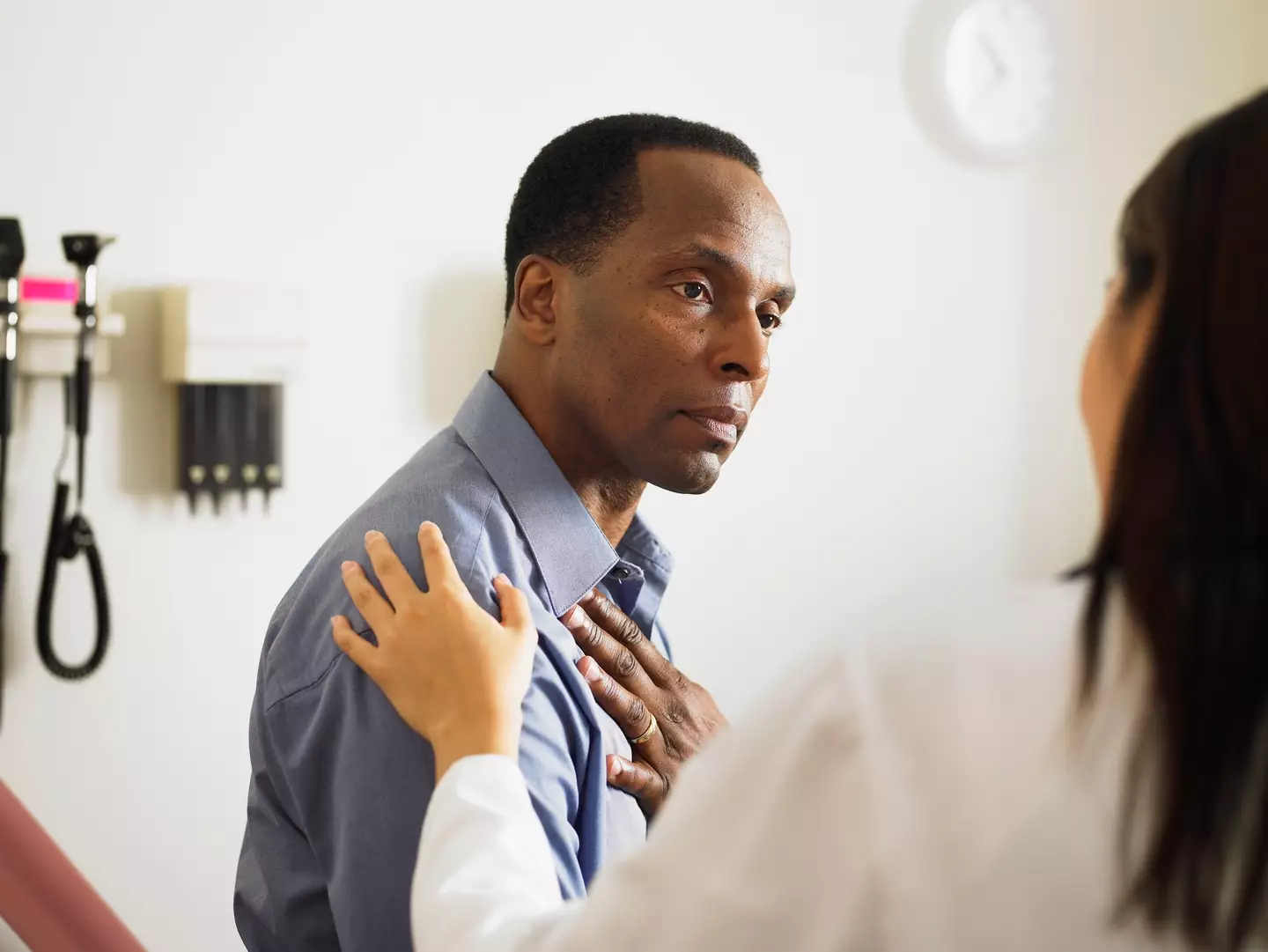
Recovery from a stroke varies from patient to patient (Getty Stock Images)
Bouverie added: “This new NHS campaign is so important to help raise awareness that stroke is always a medical emergency. If you spot any of the three common signs of a stroke in someone, the first thing you should do is call 999.
“The quicker many stroke treatments are given, the better.
“As we say, ‘time is brain’, so it’s important to recognise any of the signs of a stroke and act immediately. Acting FAST is vital for stroke survival and to help improve the journey to recovery.”
Featured Image Credit: Getty Stock Images

The death of a Scottish nurse has been linked to the use of a weight loss drug which was recently approved for use on the NHS.
Susan McGowan, 58, passed away on 4 September this year after suffering from multiple organ failure, septic shock and pancreatitis – each of which were listed as her immediate cause of death.
But the use of ‘prescribed tirzepatide’ – an injection which helps people shed the pounds – was also recorded as a contributing factor.
It is thought to be the first death in the UK that has been officially linked to drug produced by pharmaceutical firm Eli Lilly, according to the BBC.
The drug, which was developed for adults with type 2 diabetes, was approved for use on the NHS last year by the UK’s medicines watchdog.
A study published in the New England Journal of Medicine found that it could also help obese and overweight people lose weight, which researchers saying it could be ‘game-changing’.
Tirzepatide – also known under the brand name Mounjaro – works by mimicking hormones which make people feel full after eating, while slowing down how quickly food moves through the digestive system.
In turn, this encourages them to eat less and therefore lose weight.
It typically costs between £150 and £200 for a four-week supply.

Nurse Susan McGowan passed away in September (Facebook)
Following its approval, a spokesperson for the Medicines and Healthcare products Regulatory Agency (MHRA) said: “We are pleased to confirm that we have authorised Mounjaro (tirzepatide) – a new class of treatment for adults with insufficiently controlled type 2 diabetes.
“No medicine would be approved unless it meets our expected standards of safety, quality and effectiveness.”
Susan, from North Lanarkshire, took two low-dose injections of tirzepatide in the two-week period before her death earlier this year.
She had researched the drug and sought medical advice about it, before purchasing a prescription of it through a registered online pharmacy.
The nurse – who worked at the University Hospital Monklands in Airdrie for more than three decades – often discussed her weight loss attempts with her loved ones and decided the jabs might aid her.
However, just days after administering her second injection, Susan began to experience severe stomach pains and sickness, prompting her to rush to A&E at her place of work.
Her colleagues fought to save her life as her condition began to deteriorate, while Susan’s niece Jade Campbell was informed that her aunt’s kidneys were no longer functioning properly.
The 58-year-old fell into a coma days later, before doctors realised her organs had began to fail.

(Facebook)
“It was so quick,” Jade told the BBC. “I still find myself thinking, ‘Has that actually happened?’
“Susan had always carried a wee bit of extra weight but there were never any health concerns. She wasn’t on any other medication. She was healthy.
“Susan was such a bubbly person. She was really generous, she was really kind and she was the life of the party – a huge personality. They said she had the biggest laugh in the hospital.”
Due to factors such as cost and availability, tirzepatide is only currently prescribed by the NHS for a small number of patients.
Dr Alison Cave, MHRA chief safety officer, told the BBC: “Our sincere sympathies are with the family of individual concerned. Patient safety is our top priority and no medicine would be approved unless it met our expected standards of safety, quality and effectiveness. We have robust, safety monitoring and surveillance systems in place for all healthcare products.
“On the basis of the current evidence the benefits of GLP-1 RAs outweigh the potential risks when used for the licensed indications.”
The MHRA runs the ‘yellow card scheme’ which allows members of the public or health professionals to submit reports regarding suspected side effects of drugs.
Between January and May 2024 – which is the only public data available on it – there were 208 reports about tirzepatide, including 31 serious reactions and one suspected death of a man in his sixties.
A spokesperson for Eli Lilly told LADbible that ‘patient safety is their top priority’.
“We are committed to continually monitoring, evaluating, and reporting safety information for all Lilly medicines,” the pharmaceutical company said in a statement.
“Mounjaro (tirzepatide) was approved based on extensive assessment of the benefits and risks of the medicine, and we provide information about the benefits and risks of all our medicines to regulators around the world to ensure the latest information is available for prescribers. If anyone is experiencing side effects when taking any Lilly medicine, they should talk to their doctor or other healthcare professional.”
Featured Image Credit: Facebook
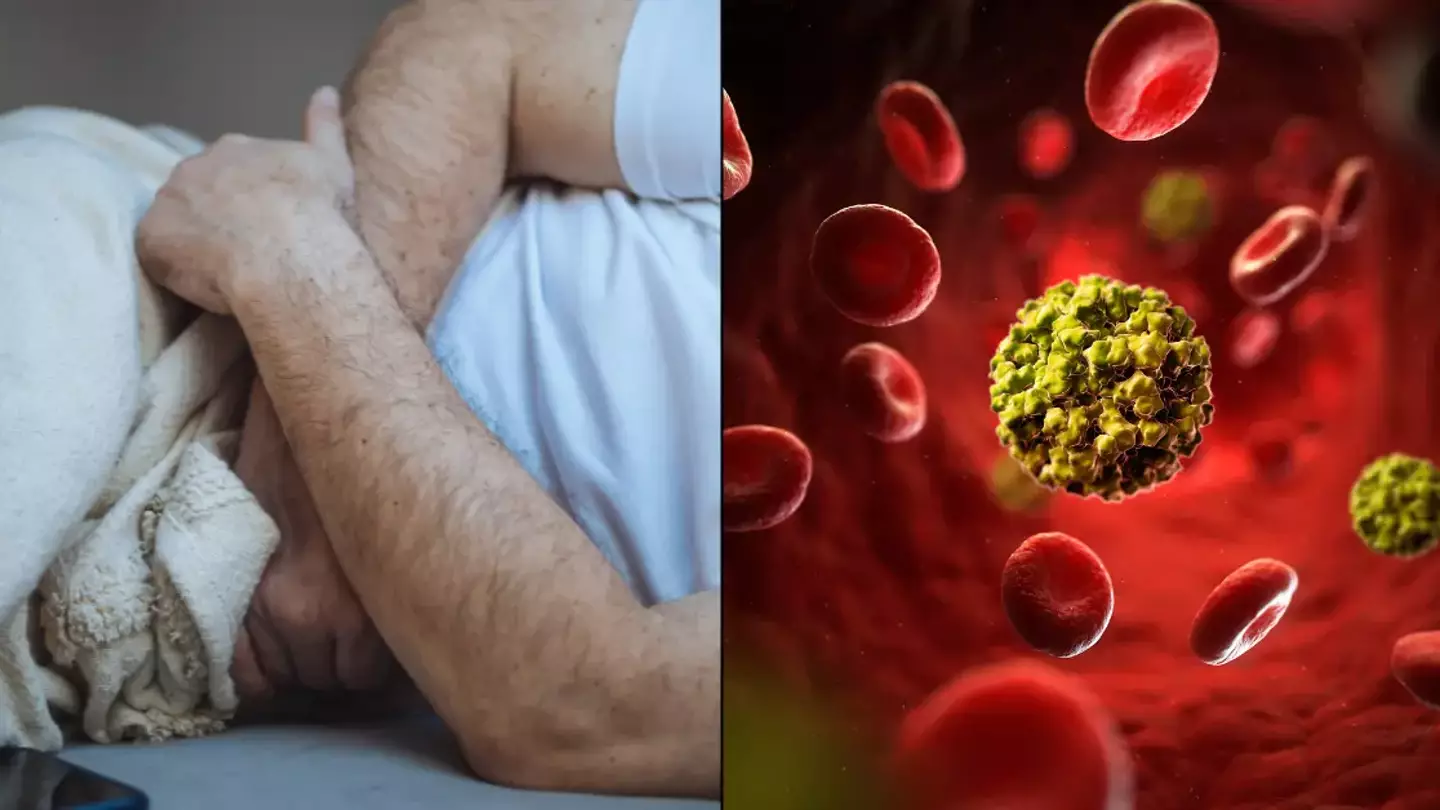
A new virus is sweeping the UK at the moment and it isn’t showing any signs of slowing down.
The unpleasant stomach bug was highlighted in warnings to the British public last month as infections were higher than the seasonal average, though things have not improved since then as new variants have appeared.
The ‘Kawasaki’ bug, named after the Japanese city where it originated from, has emerged as a new variant of norovirus, and it actually makes up 70 percent of all existing cases of the winter bug, according to the UK Health Security Agency (UKHSA).

The virus is continuing to spread across the UK (Getty Stock Image)
What is norovirus?
According to the NHS, norovirus is a stomach bug that can be ‘very unpleasant’, though it often goes in around two days.
Health experts are urging people that have contracted the bug to isolate themselves at home while recovering, and to stay behind closed doors for two additional days after recovering to prevent the spread – five days in total.
In the last two weeks of October, the nation saw a 16 percent increase in cases compared to the previous two weeks, reports the Mirror.
It should be noted that this is based on cases confirmed in a lab, not others that may have suffered with the infection and not got it tested.
As the number of patients admitted to hospital continue to skyrocket, a spokesperson for the UKHSA stated: “The increase of the variant has been observed in other countries and is being closely monitored.”
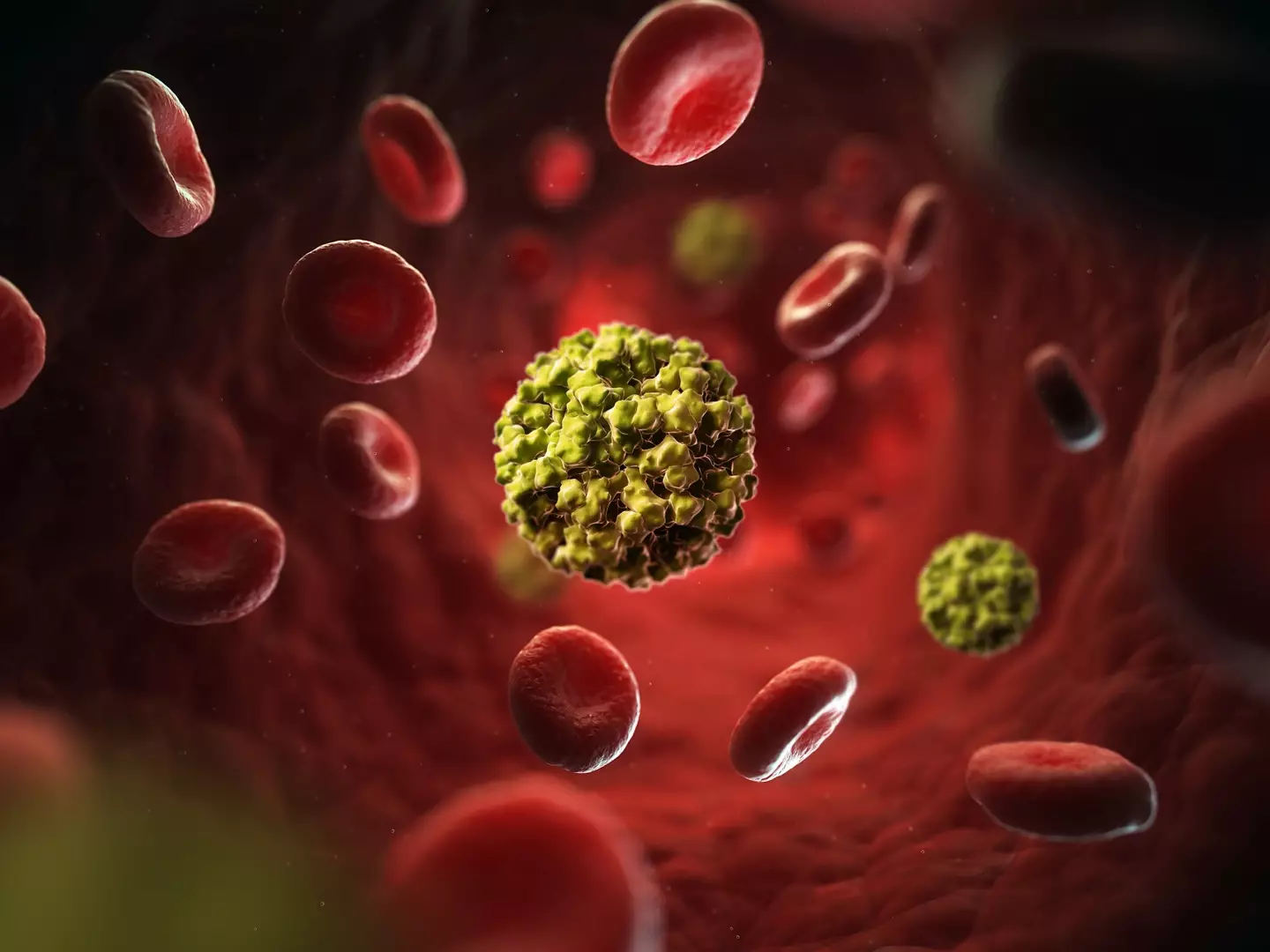
Feeling nauseous or suddenly getting diarrhoea are a few of the symptoms linked with the infection (Getty Stock Image)
What are the symptoms to look out for?
The NHS’ official advice lists the main symptoms of norovirus, which start suddenly within a day or two of being infected, as:
- Feeling nauseous
- Diarrhoea
- Vomiting
- Having a high temperature
- Having a headache
- Arms and legs aching
You can treat yourself at home, simply by resting and drinking plenty of fluids.
Norovirus and its Kawasaki bug variant is spread by close contact with someone else who is infected, or touching surfaces or objects that have been contaminated with the virus, including eating food that has been handled by someone infected.
Washing your hands frequently with soap and water, not just hand-gels, can kill the virus.

You can prevent the stomach bug by keeping your hands clean (Getty Stock Image)
Medical expert’s advice on norovirus
The deputy director of gastrointestinal infections at the UKHSA, Gauri Godbole, revealed what you should do if you think you have contracted the infection.
“If you have diarrhoea and vomiting, do not return to work, school or nursery until 48 hours after your symptoms have stopped and don’t prepare food for others in that time either,” she said.
“If you are unwell, avoid visiting people in hospitals and care homes to prevent passing on the infection in these settings.
“People who fall ill with norovirus are advised to rest, get plenty of fluids and take paracetamol. Norovirus is a highly contagious virus that causes gastroenteritis, an inflammation of the stomach and intestines.
“It’s sometimes referred to as the ‘stomach flu’ although it’s not related to the influenza virus. Norovirus is the leading cause of foodborne illness and outbreaks of gastrointestinal illness worldwide, especially in places like hospitals, cruise ships, schools, and nursing homes, where people are in close quarters.”
